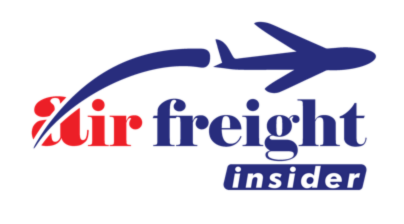Daily Briefing – August 7, 2025
Welcome back to airfreightinsider.com, your daily source for the most important developments in aviation and air cargo. Today’s briefing highlights key moves in airline networks, aircraft market shifts, and emerging trends in flight technology and security.
Network Adjustments and Codeshare Deals Reshape European and Asian Airspace
Vueling plans a cautious winter season adjustment, reducing its flight offerings on DACH (Germany, Austria, Switzerland) routes by roughly 3% in the upcoming 2025/26 schedule from Barcelona, reflecting ongoing capacity recalibrations in Europe ahead of the winter travel period.
Meanwhile, KLM Cityhopper deepens cooperation within the Air France-KLM Group by wet-leasing three Embraer E190 aircraft from Hop, strengthening its regional European footprint. Complementing this alliance, Indigo and KLM will launch a codeshare agreement effective August 11, granting passengers expanded access to 30 European routes including key hubs like Berlin, Düsseldorf, Frankfurt, and Munich.
On a broader European scale, Lufthansa, Austrian Airlines, Brussels Airlines, and SWISS have extended their codeshare partnership with Italy’s ITA Airways. Starting September 2, the cooperation includes numerous long-haul routes, enabling travelers to book seamless journeys with single-ticket convenience across multiple carriers within the group.
Strategic Airline Moves: Turkish Airlines Eyes Air Europa Acquisition
Turkish Airlines is sharpening its pursuit of a controlling stake in Spain’s Air Europa, positioning itself as the sole serious bidder following the exit of Air France-KLM and Lufthansa Group from the acquisition race. The Turkish flag carrier is reportedly preparing a binding offer as part of a strategic attempt to strengthen its network, especially targeting enhanced connectivity and market share within Europe and beyond.
Fleet Developments and Aircraft Market Insights
Thai Airways is exploring a fleet expansion with the potential acquisition of 35 additional aircraft, though the choice of manufacturer remains undecided. This move signals ongoing attempts by legacy carriers in Asia to modernize and scale their operations amid intensifying competition.
Embraer continues to find opportunities in the US despite trade challenges. The Brazilian manufacturer reports active sales talks with American airlines for E195-E2 jets, confident that the market potential outweighs the impact of the current 10% tariffs.
However, the freighter segment faces hurdles as Air Lease Corporation, the launch customer for the Airbus A350 Freighter, formally cancelled its order in June. CEO John Plueger cited strategic realignments during the Covid pandemic era as primary reasons—an outcome that may complicate Airbus’ cargo ambitions and bolsters competition with Boeing’s established freighter platforms.
Another highlight: Boeing’s 777X, long delayed and subject to skepticism, is regaining favor among airlines after a series of recent technological and operational improvements, positioning it again as a competitive player in the widebody market.
Technology and Safety: Flight Recorder Innovations and Security Alert in India
Following the tragic crash of a Boeing 787 Dreamliner operated by Air India, attention turns to cutting-edge black box technology. Modern aircraft like the Dreamliner now utilize combined Enhanced Airborne Flight Recorders that integrate voice and data recording functions, marking a new era in accident investigation and flight safety.
In a related vein, India’s aviation security agency BCAS has elevated all airport security to the highest alert level between September 22 and October 2, citing potential threats from terrorist and antisocial groups. This unprecedented safety measure underscores the persistent challenges in securing increasingly busy airspace.
Operational Disruptions and Environmental Concerns
United Airlines recently overcame a significant system outage that halted flights and caused more than 1,000 delays, reminding the industry of the vulnerabilities in airline IT infrastructure. On the environmental front, Frankfurt airport faced community backlash after weather-induced thunderstorms triggered 250 night-time flights in July, raising questions about the balance between operational demands and local noise regulations.
Infrastructure and Politics: New Airport Projects and Policy Shifts
Poland advances its ambitious Central Communication Port (CPK) with finalized construction phases for the new airport terminal and integrated railway station, designs led by Foster + Partners alongside Buro Happold. This mega-project aims to establish a major regional hub with modern passenger facilities and multimodal connectivity.
In the Netherlands, the Socialist Party (SP) has proposed a sharp reduction of Schiphol Airport’s hub function and a ban on private jets as part of its upcoming election platform, sparking debates on the future of Dutch aviation’s role amidst growing environmental and social pressures.
In Other News
- An Airbus A350 from Ethiopian Airlines encountered severe turbulence that jolted an Air Transat Airbus A321 LR about 170 nautical miles north of Gander, Canada—a stark reminder of the unpredictable hazards in flight operations.
- Booking Holdings CEO Glenn Fogel announced the firm’s decision not to use artificial intelligence for dynamic pricing, focusing AI applications instead on travel planning and experience recommendations.
That wraps up today’s snapshot of the airfreight and aviation world. Stay tuned for our video update and deeper analysis tomorrow on airfreightinsider.com.
